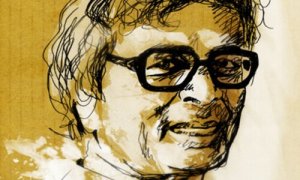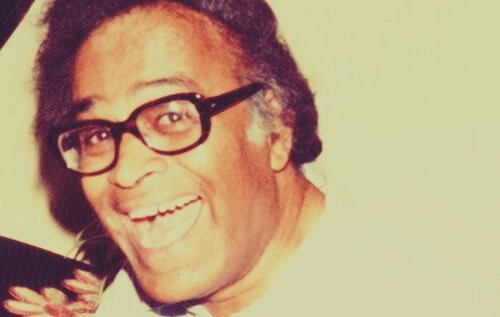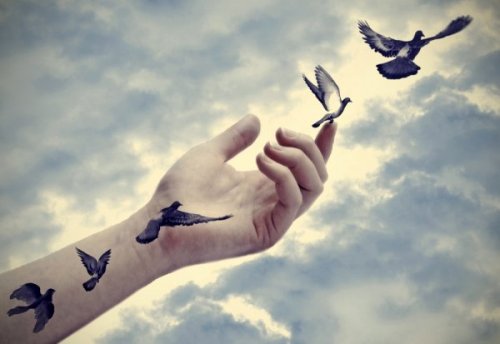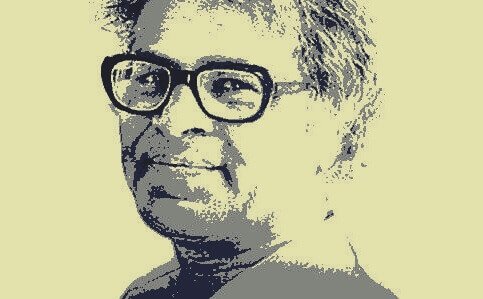Anthony de Mello: Biography of a Spiritual Mentor


Written and verified by the psychologist Valeria Sabater
Anthony de Mello was an Indian Jesuit priest, spiritual guide, and psychotherapist. He became famous for his books, lectures, and unique personality. While he was an awkward figure for many, he was an inspiring one for others.
In his books such as A Rediscovery of Life, which was his last work, he tells us that all people come into the world happy. However, little by little, people stop being aware of their potential by spending time in their personal cages of suffering. He believed that our own thoughts are our worst enemies.
On the other hand, de Mello believed in the need to accept our spiritual nature. He accepted all religious beliefs. In particular, he felt comfortable in all of them and considered them his home. Therefore, his approach was often pantheistic, which was something that the Catholic Church didn’t like. In fact, Pope Benedict XVI banned his teachings during his time in the Vatican.
Influence of Anthony de Mello
Anthony de Mello is one of the writers who has sold the most books on spirituality. Their messages are an invitation to personal growth. However, they’re also very inspiring and revolutionary.
His main influences were Buddhist master Ajahn Chah and philosopher Jiddu Krishnamurti. Although more than 30 years have passed since his death, his books are still being sold and inspire new generations. He taught us to resolve conflicts and to work on our freedom and happiness.
“Perfect love casts out fear. Where there is love there are no demands, no expectations, no dependency. I do not demand that you make me happy; my happiness does not lie in you. If you were to leave me, I will not feel sorry for myself; I enjoy your company immensely, but I do not cling.”
-Anthony de Mello-

Biography of Anthony de Mello
Anthony de Mello was born on September 4, 1931, in Bombay, British India. He belonged to a middle-class Catholic family. His father Frank and his mother Louisa, both natives of a Portuguese territory called Goa, expected their eldest son to prosper in the railway business or to get a college education.
However, Anthony de Mello knew he wanted to become a Jesuit priest. In July 1947, he finally decided to join the Society of Jesus at the seminary of Vinalaya on the outskirts of Bombay. Later, in 1952, he began his academic training. He spent three years in Barcelona, Spain studying philosophy.
Later, he traveled to Loyola University Chicago to train as a psychologist. He was influenced and inspired by Carl Rogers, the famous American psychologist who initiated the humanistic approach along with Abraham Maslow. Throughout his academic trajectory, de Mello was able to learn from different cultures. He even learned Spanish, French, Portuguese, and Marathi.
Anthony de Mello and his search for spirituality in all religions
During the ’70s, Anthony de Mello opened his mind and heart to the practice of Vipassanā meditation and Buddhist spirituality.
In his opinion, all religions could offer healing perspectives to all human beings. Therefore, he accepted all of them and they all inspired him. In his opinion, the spiritual teachings of Jesus Christ were just as valid as those of Confucius, Laozi, or Buddha. Therefore, in books such as The Song of the Bird, which was published in 1982, Anthony de Mello defined spirituality as:
Spirituality is that which succeeds in bringing one to Inner Transformation. If a person applies traditional methods handed down by the Masters, it is not Spirituality if it does not perform its function for them. A blanket is no longer a blanket if it does not keep you warm. People change and needs change. So what was Spirituality once is Spirituality no more. What generally goes under the name of Spirituality is merely the record of past methods.
Likewise, another well-known facet of this Indian Jesuit and psychotherapist was his great ability to carry out spiritual retreats in which he guided and inspired others. He had a lot of charisma and a personality that many people defined as irresistible. However, for other people, he was nothing more than a heretic.

He dared to consider ideas and defend positions that traditional Catholics couldn’t understand. Thus, he was an interreligious teacher who equally appreciated and defended Hinduism, Judaism, Buddhism, and Catholicism. In short, all religions inspired him. His charisma always made him very convincing, which is why he swept thousands of followers to his teachings.
A spiritual master in the United States
In the ’70s, he founded the Sadhana Institute in India. He devoted the rest of his life to introducing Eastern spirituality through stories and exercises in the United States. He was a spiritual healer and psychologist who traveled all over the world teaching people a type of prayer based on Vipassanā meditation.
Some of his lectures aimed to help people focus on the present and become more aware of their emotions, thoughts, and needs. He wrote 18 books in total which inspired millions of people around the world.

Unfortunately, in 1987, when he was only 55 years old, Anthony de Mello died suddenly of a fatal heart attack. After his death, his spiritual and theoretical legacy lived on, in some way fulfilling many of his purposes. He taught us to be more aware of our worth. Additionally, above all, he invited us to ‘wake up’ and get in touch with ourselves and our surroundings.
Anthony de Mello was an Indian Jesuit priest, spiritual guide, and psychotherapist. He became famous for his books, lectures, and unique personality. While he was an awkward figure for many, he was an inspiring one for others.
In his books such as A Rediscovery of Life, which was his last work, he tells us that all people come into the world happy. However, little by little, people stop being aware of their potential by spending time in their personal cages of suffering. He believed that our own thoughts are our worst enemies.
On the other hand, de Mello believed in the need to accept our spiritual nature. He accepted all religious beliefs. In particular, he felt comfortable in all of them and considered them his home. Therefore, his approach was often pantheistic, which was something that the Catholic Church didn’t like. In fact, Pope Benedict XVI banned his teachings during his time in the Vatican.
Influence of Anthony de Mello
Anthony de Mello is one of the writers who has sold the most books on spirituality. Their messages are an invitation to personal growth. However, they’re also very inspiring and revolutionary.
His main influences were Buddhist master Ajahn Chah and philosopher Jiddu Krishnamurti. Although more than 30 years have passed since his death, his books are still being sold and inspire new generations. He taught us to resolve conflicts and to work on our freedom and happiness.
“Perfect love casts out fear. Where there is love there are no demands, no expectations, no dependency. I do not demand that you make me happy; my happiness does not lie in you. If you were to leave me, I will not feel sorry for myself; I enjoy your company immensely, but I do not cling.”
-Anthony de Mello-

Biography of Anthony de Mello
Anthony de Mello was born on September 4, 1931, in Bombay, British India. He belonged to a middle-class Catholic family. His father Frank and his mother Louisa, both natives of a Portuguese territory called Goa, expected their eldest son to prosper in the railway business or to get a college education.
However, Anthony de Mello knew he wanted to become a Jesuit priest. In July 1947, he finally decided to join the Society of Jesus at the seminary of Vinalaya on the outskirts of Bombay. Later, in 1952, he began his academic training. He spent three years in Barcelona, Spain studying philosophy.
Later, he traveled to Loyola University Chicago to train as a psychologist. He was influenced and inspired by Carl Rogers, the famous American psychologist who initiated the humanistic approach along with Abraham Maslow. Throughout his academic trajectory, de Mello was able to learn from different cultures. He even learned Spanish, French, Portuguese, and Marathi.
Anthony de Mello and his search for spirituality in all religions
During the ’70s, Anthony de Mello opened his mind and heart to the practice of Vipassanā meditation and Buddhist spirituality.
In his opinion, all religions could offer healing perspectives to all human beings. Therefore, he accepted all of them and they all inspired him. In his opinion, the spiritual teachings of Jesus Christ were just as valid as those of Confucius, Laozi, or Buddha. Therefore, in books such as The Song of the Bird, which was published in 1982, Anthony de Mello defined spirituality as:
Spirituality is that which succeeds in bringing one to Inner Transformation. If a person applies traditional methods handed down by the Masters, it is not Spirituality if it does not perform its function for them. A blanket is no longer a blanket if it does not keep you warm. People change and needs change. So what was Spirituality once is Spirituality no more. What generally goes under the name of Spirituality is merely the record of past methods.
Likewise, another well-known facet of this Indian Jesuit and psychotherapist was his great ability to carry out spiritual retreats in which he guided and inspired others. He had a lot of charisma and a personality that many people defined as irresistible. However, for other people, he was nothing more than a heretic.

He dared to consider ideas and defend positions that traditional Catholics couldn’t understand. Thus, he was an interreligious teacher who equally appreciated and defended Hinduism, Judaism, Buddhism, and Catholicism. In short, all religions inspired him. His charisma always made him very convincing, which is why he swept thousands of followers to his teachings.
A spiritual master in the United States
In the ’70s, he founded the Sadhana Institute in India. He devoted the rest of his life to introducing Eastern spirituality through stories and exercises in the United States. He was a spiritual healer and psychologist who traveled all over the world teaching people a type of prayer based on Vipassanā meditation.
Some of his lectures aimed to help people focus on the present and become more aware of their emotions, thoughts, and needs. He wrote 18 books in total which inspired millions of people around the world.

Unfortunately, in 1987, when he was only 55 years old, Anthony de Mello died suddenly of a fatal heart attack. After his death, his spiritual and theoretical legacy lived on, in some way fulfilling many of his purposes. He taught us to be more aware of our worth. Additionally, above all, he invited us to ‘wake up’ and get in touch with ourselves and our surroundings.
All cited sources were thoroughly reviewed by our team to ensure their quality, reliability, currency, and validity. The bibliography of this article was considered reliable and of academic or scientific accuracy.
- De Mello, Anthony (2008) Redescubrir la vida. Lumen
This text is provided for informational purposes only and does not replace consultation with a professional. If in doubt, consult your specialist.







